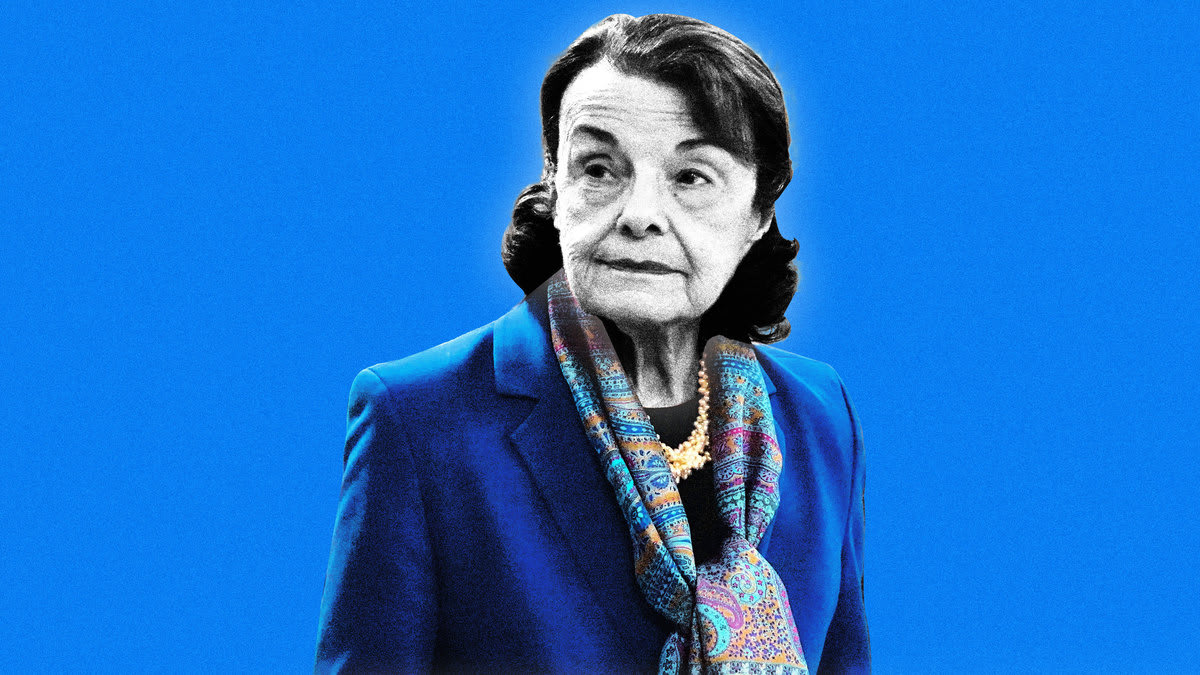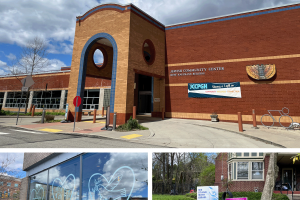For those of us who admire Dianne Feinstein, it’s been painful to watch her being sidelined as her staff tries to protect her from the whispers of her colleagues and the indignities of her not knowing when it’s time to retire. Running for a six-year term at age 85 was pushing it, but after three decades as a U.S. senator representing California, giving up her Senate seat was out of the question. It was her life. It was in her DNA.
Then last year, her husband, Richard Blum, died after a long battle with cancer. He was thought to be the only one who could convince his wife there was more to life than flying cross-country to serve in Washington. With his death, the questions only increased about when she would retire. She turned 89 last June, and her response to those questions was to say she was getting over the loss of her husband. She needed time.
Now, with at least three announced candidates for her seat, she made it official. Or at least her staff made it official, and she can run out the clock for the next two years to fulfill her fifth six-year term in the Senate, which doesn’t end until January 2025. She is still pushing it considering the demands of the office, her faltering memory, and the travel involved.
This is the soft landing she wanted, maybe even demanded, and it’s been a long time coming. After the November 2020 election, Feinstein announced that she would not seek the chairmanship or ranking position on the Judiciary Committee, bowing to concerns spelled out in devastating detail in a New Yorker article about her memory lapses.
She deserves better than to end her career addressing questions about her cognitive lapses, when she has done so much to serve her constituents and the country. From the moment she arrived in Washington in 1992 as a “new Democrat,” she quickly carved out an important role as a centrist forged in local city politics who could find compromise among competing factions within her party and across the aisle.
In 1994, as a freshman lawmaker, she wrote the bill that banned military-style assault weapons. It expired after 10 years, and efforts to renew it languished until the Sandy Hook massacre. In the wake of that tragedy, Feinstein tried again to ban assault weapons. On the day of the vote, she displayed a New York Daily News front page that showed photos of the deceased children underneath the headline, “Shame on U.S.”
“Show some guts,” Feinstein urged her colleagues. The vote wasn’t even close, and for Feinstein, gun control was personal. She was the first to find the body of city supervisor Harvey Milk, San Francisco’s first openly gay elected official. Checking for a pulse on his wrist, her finger “went through a bullet hole.”
The 1978 assassination of Milk and Mayor George Moscone by a crazed former cop prompted Feinstein to run for mayor, launching her as a national figure with a platform of gun safety and gay rights.
Standing at 5-foot-10, and with an air of self-confidence, Feinstein could easily command a room and hold her own with all the men around her.
“I’ve had to get along in a male world,” she said after winning her senate seat in 1992. “I am of an age where when I first applied for a job, it was women need not apply. So the way I’ve chosen to go is to show that I can be effective.”
She quickly became one of the stand-out stars of the Senate, trusted by both sides to serve on the Select Committee on Intelligence since early 2001, before the 9/11 attacks. She chaired the committee from 2009 to 2015 and was vice-chairman or ranking member from 2015-2017.
She gained notoriety in 2014 when she successfully fought to release parts of the committee’s report on the CIA’s torture program, which she had helped to expose and investigate, and which she called in a speech on the Senate floor a “stain on our values and on our history.” It detailed the “enhanced interrogation” of terrorists sanctioned by the Bush administration in its war on terror. “This is too important a report to shelve,” she said, explaining why she took on the CIA. “I came to the conclusion that America’s greatness is being able to say we made a mistake and we are going to correct it and go from there.”
We shouldn’t let Feinstein’s reluctance to leave a job she has done so well overshadow the very real contributions she has made and will continue to make as she serves out the remainder of her term.
Big things were always expected of Feinstein. She was the mayor of San Francisco when she was first touted as a potential vice-presidential candidate. It was 1984, and Democrat Walter Mondale was looking to make history and choose a woman as his running mate. Feinstein found it preposterous. “I’m on my third marriage,” she exclaimed. “This job is hell on my private life. My husband, Dick Blum, is a most patient man. President? Me? I’m not ambitious for higher office. I’ve got to survive as mayor.”
Over the years, as various women were considered presidential material, Feinstein always made the list. She would have none of it and was even somewhat amused that the media attributed to her an ambition for higher office that she didn’t possess. She had found her calling in the Senate. Now she will be leaving on terms that will allow her to step back and savor the moment.
Her retirement only serves as the starting gun for the race of the century in California to succeed the indomitable Di-Fi.






